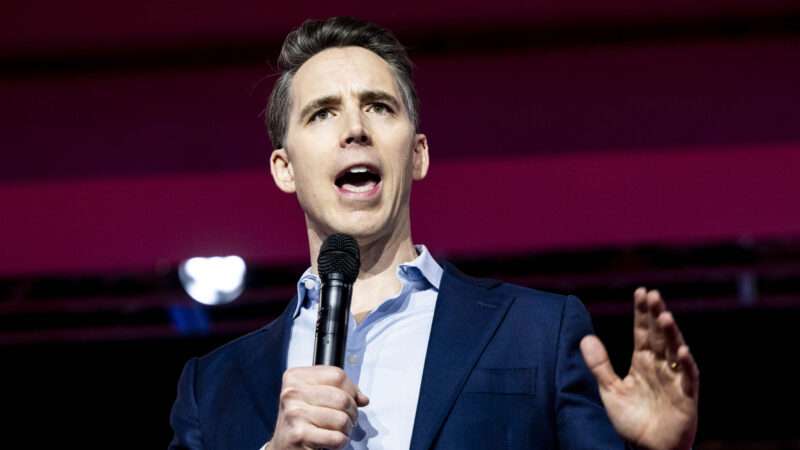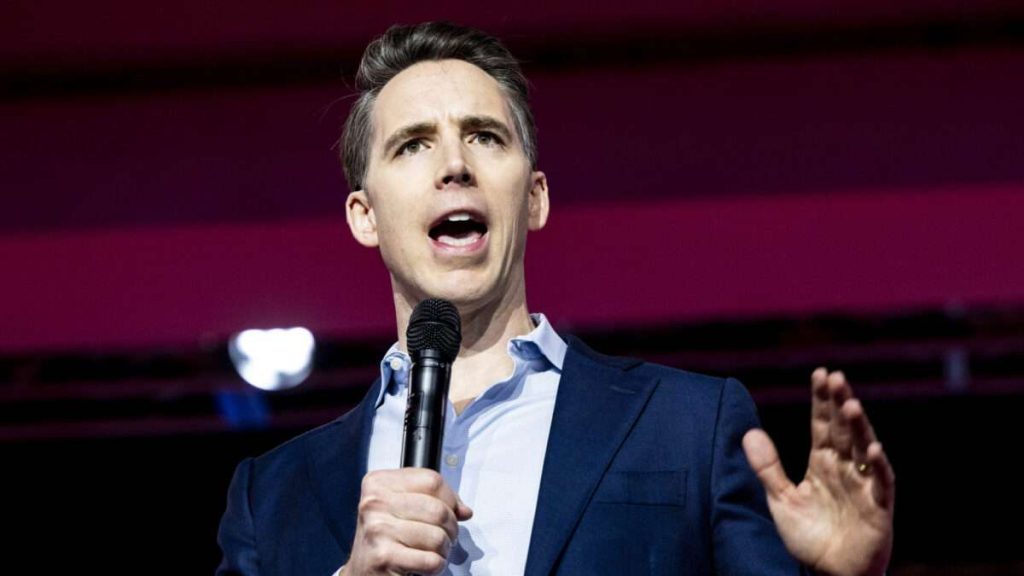
We’re well accustomed to progressive politicians railing against corporate greed, especially here in California where Gov. Gavin Newsom and his Democratic allies blame oil companies—and not their own tax and regulatory policies—for our sky-high gasoline prices.
This economic illiteracy isn’t confined to our state, of course, with the ongoing congressional hearings on credit card rates likely to feature all the usual posturing and big-government claptrap. Here’s a statement by Sen. Bernie Sanders (I–Vt.) about calls for the federal government to cap card rates at 10 percent:
“Americans are being crushed under the weight of record credit card debt—and the biggest banks are just getting richer. The government was quick to bail out the banks just this spring, but has ignored working people struggling to get ahead. Capping the maximum credit card interest rate is fair, common sense, and gives the working class a chance.”
I’m just funning with you. That statement was not from Sanders, but from his colleague, Sen. Josh Hawley (R–Mo.). He’s one of the most pro-MAGA Republicans in the Senate. Here’s what Sanders actually said: “We cannot continue to allow big banks to make record profits by ripping off Americans by charging them 25 to 30 percent interest rates.” Do you detect any difference? Neither can I.
Sanders issued his statement in support of the 10 percent cap, which was proposed by Republican President-elect Donald Trump. Such is the contradictory world of populism, which increasingly resembles the Horseshoe Theory of Politics. The extremes of Left and Right inhabit the ends of a horseshoe rather than the opposite ends of a line. Their positions often are the same even if each side got there by a different ideological route.
For many years, classical liberals such as myself have looked for the libertarian moment—a time when the public understands the best way to ensure social peace and prosperity is to limit government meddling and promote free choice. Instead, we’ve arrived at the libertarian anti-moment, where the major parties have, to paraphrase the “Dr. Strangelove” subtitle, learned to stop worrying and love the Nanny State.
In my ideal world, politicians should advance a principled set of policy objectives that promote freer markets and less regulation, leaving cultural matters to individuals and their freely chosen communities. Not that long ago, conservatives talked about building the “just leave us alone coalition.” It was a beautifully simple concept. We could build wide coalitions—from religious conservatives to left-wing hippies—based on everyone’s desire to be left alone.
The progressive movement is best known for meddling in everything and trying to ban and cajole us. Instead of sticking with the idea of freedom, however, the MAGA movement has decided to echo its enemies, rally people around their cultural tribe and join in all the fun of regulating, mocking, and hectoring the American people.
The result is a never-ending grudge match, with whatever side is victorious using the government to stick it to the other side. There are exceptions, such as Trump’s promise to slash federal agencies (something we’ve heard many times before but never amounts to anything), but overall this is a disturbing development.
Regarding credit-card policy, it’s not hard to understand what’s wrong with this new populist attack on the banking industry. Practically speaking, limiting rates to 10 percent will mean that only wealthy people with the highest credit scores—people who use the cards for convenience and to run up frequent-flyer points—will be able to have them. It also means improper government meddling in private transactions.
It’s rarely wise to run up high-interest credit card debt, but for people scraping by it’s a better alternative to payday lenders, car-title loans, and loan sharks. Even the pro-Trump Heritage Foundation last year noted that by drying up credit, the caps would “inadvertently deny temporary financial resources to families dealing with price hikes that outpace pay increases” and would result in “more defaults, bankruptcies, ruined credit histories.”
But such sensible, policy-based retorts don’t pass muster in a populist world, where ever-shifting positions key off of tribal loyalties (sticking up for the working class!) rather than principled evaluations. With Trump 2.0, this approach isn’t confined to banking regulations but likely will be applied to trade policy even though tariffs are a punitive tax on consumers.
And it will apply to health policy, as Robert F. Kennedy Jr. takes the helm at Health and Human Services. That appointment perfectly encapsulates the GOP’s new take on the Nanny State, as he vows to make us healthy again. I never thought I’d see the day the GOP believed the federal government can micromanage our eating habits rather than, you know, just ending subsidies and regulations that promote unhealthy eating.
Newsom is positioning himself as the head of the Trump resistance, but who knew that he’d have so much in common with the new administration?
This column was first published in The Orange County Register.
The post Republican Populism Aims To Expand the Nanny State appeared first on Reason.com.







